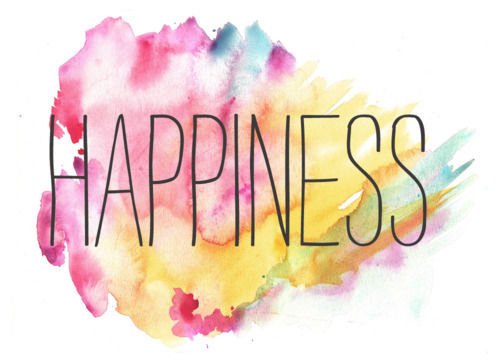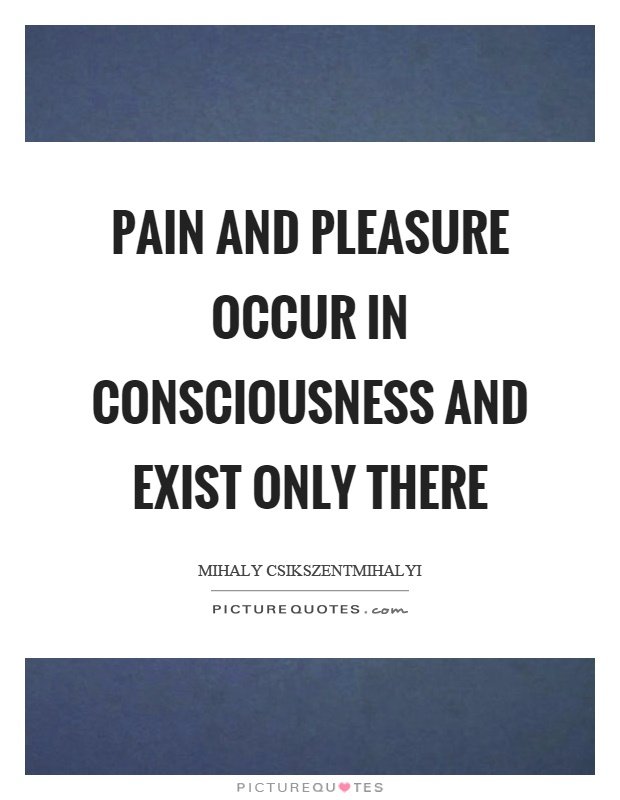Understanding Hedonism As The Recognition of Pleasure and Pain
Understanding Hedonism

Image Source
Hedonism alludes to a few related theories about what is good for us, how we ought to behave, and what persuades us to behave in the ways that we do. All hedonistic theories recognize pleasure and pain as the main essential elements of whatever phenomena they are intended to portray. On the off chance that hedonistic theories distinguished pleasure and pain as simply two essential elements, rather than the main critical elements of what they are portraying, at that point they would not be so disagreeable as they all may be. In any case, the claim that pleasure and pain are the main things of extreme significance is the thing that makes hedonism particular and philosophically interesting.
Philosophical Hedonists tend to focus on hedonistic theories of value, and especially of well-being, the good life for the one living it. Hedonism expresses that pleasure is intrinsically valuable and pain is intrinsically disvaluable. Hedonists usually characterize pleasure and pain comprehensively, with the end goal that both the pleasure of reading a good book and the pain of reading a bad postulation are incorporated.
Forms of Hedonisms
Folk Hedonism
Value Hedonism
Prudential Hedonism
Motivational Hedonism
Normative Hedonism
Folk Hedonism
At the point when the term hedonism is used in modern literature, its importance is very not the same as the one it takes when used by philosophers. Non-philosophers would think about a man who seek out pleasure for themselves with no particular respect for its outcome.
As indicated by non-philosophers, a stereotypical glutton is someone who never misses a chance to indulge of the pleasures of drugs, sex, and rock 'n' roll, regardless of the possibility that the indulgences are probably going to prompt relationship issues, medical issues, second thoughts, or bitterness for themselves or for others. Philosophers ordinarily allude to this regular comprehension of hedonism as 'Folk Hedonism'. Folk Hedonism is an unpleasant blend of Motivational Hedonism, Hedonistic Egoism, and a heedless absence of prescience.

Image Source
Value Hedonism
Hedonism as a theory that pleasure is intrinsically valuable and pain is intrinsically disvaluable. Pleasure is the main prudential good and pain is the main prudential bad. The term intrinsically is a vital part of the definition and is best comprehended rather than the term instrumentally. Something is intrinsically valuable on the off chance that it is valuable for its own purpose. Pleasure is believed to be intrinsically valuable because, regardless of the possibility that it didn't prompt some other advantage, it would at present regard experience.
Prudential Hedonism
Hedonism as a theory about well-being is more particular than Value Hedonism because it stipulates what the value is for. Prudential Hedonism holds that all and just pleasure intrinsically improves people's lives go for them and that all and just pain intrinsically exacerbates their lives go for them. A few philosophers supplant people with persons and aware nonpersons, to apply prudential hedonism all the more generally.
A good case of this originates from Peter Singer's work on animals and ethics. Artist questions why a few humans can see the intrinsic disvalue in human pain, yet don't likewise acknowledge that it is bad for conscious non-human animals to experience pain. At the point when prudential hedonists assert that happiness is the thing that they value most, they intend happiness to be comprehended as a dominance of pleasure over pain.
Motivational Hedonism
Motivational hedonism is the theory that the desire to experience pleasure and maintain a strategic distance from pain controls all of our behavior. Most philosophical accounts of motivational hedonism incorporate both conscious and unconscious desires for pleasure, yet accentuate the last mentioned. Feeble adaptations of motivational hedonism hold that the desire to look for pleasure and keep away from pain frequently or always has some impact on our behavior. Feeble renditions are generally thought to be uncontroversially valid and not especially useful for philosophy.
Strong accounts of motivational hedonism, holds that all behavior is represented by the drives to experience pleasure and maintain a strategic distance from pain, and just this desire. Strong accounts of motivational hedonism have been used to help a portion of the normative sorts of hedonism and to contend against non-hedonistic normative theories.
Strong accounts of motivational hedonism at present collect next to no help for comparable reasons. There are numerous cases of apparently pain-seeking acts performed out of a feeling of obligation from the warrior who hops on a grenade to spare his confidants to that time you saved a caught pooch just to be bitten in the process. Given these reasons, most philosophers view the burden of proof as soundly on the shoulders of anyone wishing to contend for a strong record of motivational hedonism.

Image Source
Normative Hedonism
Value hedonism, occasionally with help from motivational hedonism, has been used to contend for particular theories of right action. The theory that happiness ought to be sought after is alluded to as normative hedonism and in some cases moral hedonism. There are two noteworthy sorts of normative hedonism: Hedonistic Egoism and Hedonistic Utilitarianism. The two sorts usually use happiness as the sole standard for determining the moral rightness or wrongness of an action.
Vital varieties inside each of these two primary sorts indicate either the real coming about happiness or the anticipated coming about happiness as the moral measure. Albeit both real sorts of normative hedonism have been accused of being hostile, hedonistic egoism is usually viewed as the most hostile.
Kind of Normative Hedonism
Hedonistic Egoism
Hedonistic Utilitarianism
Hedonistic Egoism
Hedonistic egoism is the theory that we should, morally, do whatever is most in our own particular best interests. Because it is a form of hedonism, it holds that what is most in our own best interests is whatever makes us most joyful, that is whatever gives us the most net pleasure after pain is subtracted. The most disgusting component of this theory is that one never needs to attribute any value at all to the results for anyone other than oneself.
This is exceptionally disagreeable among philosophers thus, as well as because it experiences all of the objections that apply to prudential hedonism.

Image Source
Hedonistic Utilitarianism
Hedonistic utilitarianism is the theory that the right action is the one that creates the best net happiness for all concerned. It is regularly viewed as more attractive than hedonistic egoism because the happiness of everyone included is considered and given equivalent weight. It is still observed as objectionable by some because it allocates no intrinsic moral value to justice, friendship, truth, or any of the numerous different goods that are frequently thought to be unchangeably valuable.
A hedonistic utilitarian would be morally obliged to publicly execute a friend of theirs if doing as such was the only way to advance its happiness. It is once in a while endorsed by philosophers, yet basically because of its dependence on prudential hedonism instead of its utilitarian element.

Image Source

References:
https://en.wikipedia.org/wiki/Hedonism
http://www.hedonism.com/what-is-hedonism/what-to-expect/
http://blog.iqmatrix.com/pain-pleasure-principle
Very interesting! Never knew there were so many forms of hedonism.
The hedonistic utilitarian is exceptionally interesting. If we're talking happiness instead of pleasure, then it is not a far stretch to call it the most important thing. You could claim food and water, but whats the point of surviving a unhappy life? From that point it is easy to see the happiness of everyone as the most important thing.
Though like you there is no intrinsic value to anything else, but does there have to be? Could the value of these things be an indirect cause of the quest for happiness?
It may seem that a murderer who entertains millions would get away with their crimes, but if the system was allowed to exist like that wouldn't it effect the happiness of the majority? I'm sure much of our happiness comes from knowing we live in a society with rules to protect us.
Majority discriminating against the minority is a possible outcome, but if the majority has even a little sympathy it may even out.
Truth is the biggest issue I see. I still believe happiness is the most important thing, but I don't think the truth is something that should be hidden just because it would make people unhappy.
Thanks for the comment. Happiness and pleasure has something in common and its differences were separated only by a piece of thread. It should not be confuse and must be understood carefully. Being pleasured doesn't mean that a person is happy. In reality, lots of people failed too identify the differences of pleasure and happiness, the same with love and lust.
nice one!
Thanks